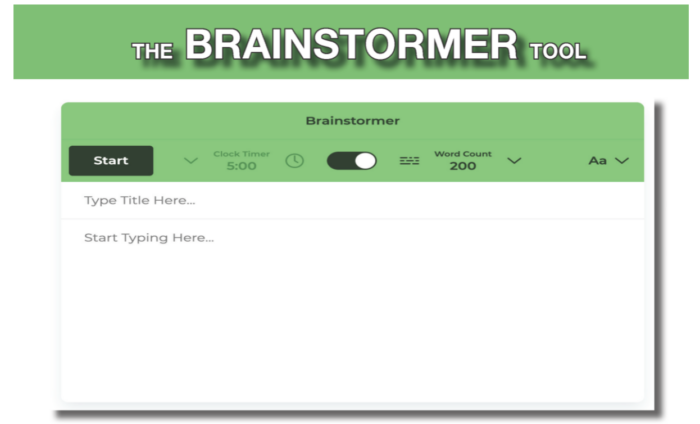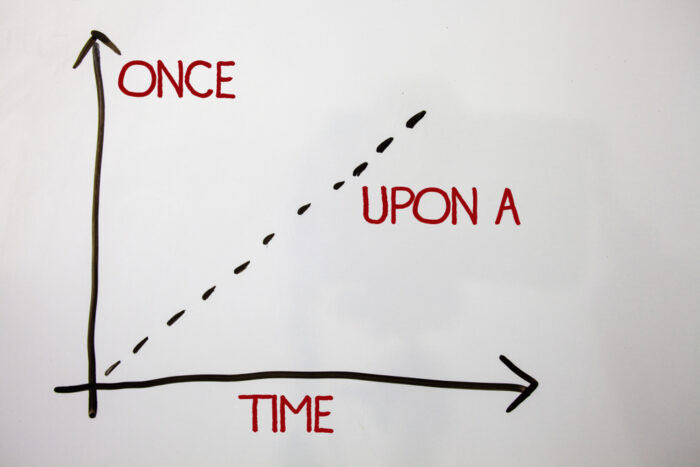How long have you been thinking about writing your memoir? Your memoir is your story that only you can truthfully tell, so it should be told as you want it to be. But like most people, It’s been at the back of your mind for such a long time, and you keep putting it off, but the thought of telling your story your way keeps resurfacing. So I’ll let you in on a little secret you don’t have to be at the end of your life to write your memoir because it can be written at any stage of your life, and don’t underestimate the potential your story may have on another person’s life. So how do you write a good book?
So that we are on the same page regarding the term “memoir”, it’s not about your entire life. Instead, it usually refers to a collection of your memories written by you about incidents in your life. These reflections and insights have a theme or message of what you’ve learned and allow readers to experience your point of view and feelings.
If you were writing an autobiography, then it would be an account of your entire life up to the present written by you. An autobiography does not usually have a theme or message.
If you were writing a biography, you are telling the story about someone else’s life. It is usually about the chronological facts of that person’s entire life story, with you as the author speculating on their feelings and motivation.
I have put together some guidelines to assist you in writing your unforgettable memoir:
- Know your Reason for Writing your Memoir
- Setting a Theme for your Memoir
- Recalling the Key Events for your Memoir
- How to Outline your Memoir
- How long should your Memoir be?
- An Editor gives your Memoir the Edge
- Essential Elements to Consider
- Parting Advice
“A memoir forces me to stop and remember carefully. It is an exercise in truth. In a memoir, I look at myself, my life, and the people I love the most in the mirror of the blank screen. In a memoir, feelings are more important than facts, and to write honestly, I have to confront my demons.”
Isabel Allende
Know your Reason for Writing your Memoir

One of the most important things to consider when writing your memoir is knowing WHY you want to write it. For example, suppose you are writing about negative experiences. In that case, it may cause you to get further down the track with your manuscript to question why you are doing it; knowing WHY is crucial for you to complete your story.
Is the reason for writing your memoir because you want your reader to be informed and transformed by reading your memoir, giving them inspiration and encouragement?
Do you have a story of a portion of your life that you would like to tell that will help you make sense of what you’ve been through? Writing your memoirs causes you to reflect on very personal issues, like divorce, being bullied, being abused mentally and physically, losing everything and having to start again, enabling you to put everything into perspective as you write.
Do you want a repository of your memories to be told in your voice so that it becomes your legacy that is something tangible, a recorded history of certain events or parts of your life that will endure?
Is there a ghost of your cultural past that you must confront for future generations?
Or is it that you want to show the significant metamorphic changes that have happened in your life and want to share how you achieved those changes through your pivotal experiences with your readers.
“You have to take pains in a memoir not to hang on the reader’s arms, like a drunk, and say, “And then I did this and it was so interesting.”
Annie Dillard
Setting a Theme for your Memoir

When writing your memoir, attaching a theme to it is essential. The theme of your memoir is the overarching message you’ve learned from an event that others can take away. There are many different themes; however, you usually only choose one theme that will run through your memoir.
Here are a few examples of themes you can use for your memoir.
- Coming of Age (this theme is often associated with loss of innocence)
- Good vs Evil (this theme is about the battle between good and evil, either physically and external or mentally and internal)
- Love Conquers All (this theme is often about the power and search for unconditional love)
- Overcoming the Odds (this theme is about triumph over adversity)
- The Power of Friendship (this theme is about the bonds that make friendships)
- Spiritual Enlightenment (this theme is about the quest for meaning)

In Package 2: Target Audience and Demographics for Books
We have designed a course about choosing the theme of a book that goes into much greater detail about universal themes and how to craft a power that will underpin your message to make your book relevant and relatable to readers.
“Most memoir writers will tell you that the hardest part of writing a memoir isn’t what to include, but what to leave out.”
Kathleen Flinn
Recalling the Key Events for your Memoir

- Make a list of only the most significant and meaningful periods of your life, the ones that impacted you the most. These periods are usually accompanied by high levels of emotions so that when you describe your experiences, your readers will likewise feel those same emotions. If a lot happened in a year, put a comma and list that as well. For example:
Age 10 – I stole an apple phone, got a dog
Age 17 – I graduated, got a car
Age 21 – bought a house, mum died
Age 23 – got married
- Look through old photos and review your old journals to identify any patterns or themes in your life.
- Interview people who were part of that period of your life that you are writing about because they may offer different insights than you.
- Brainstorm these events by starting a timer for 10 minutes or use the Brainstormer and for each event that was significant to you, write “I remember ……….” as fast as you can with whatever comes into your mind.

- After you have downloaded your session, look at what you have written and see what reflections will have the most impact on you and your readers.
“When it was suggested that I write a memoir I said, ‘I’m not old enough. I’m not distinguished enough.’ But I went home and sat down to write, and the material for the book just came flooding into my hands.”
Julia Cameron
How to Outline your Memoir

If you want to outline your Memoir, be aware there are many different ways to outline a book to create the perfect framework for your Memoir. Those considering themselves “pantsers” (the writers who fly by the seat of their pants) may not realize that being a “pantser” is an outlining technique. It really doesn’t matter what outlining method you use to write your Memoir; you can make it as straightforward or as complicated as you desire.
The outline example I am giving you is the Freytag Method of Outlining to write your Memoir. It consists of five stages:
- Exposition / Introduction
- Rising Action
- Climax
- Falling Action
- Resolution
1. Exposition / Introduction
- This is where you introduce the Protagonist (yourself), describing your personality and why you have certain traits.
- It is also where you introduce the people (family, friends etc.) involved by name, relationship and nature.
2. Rising Action
- This is where you present the hook (which is the conflict about to happen)
- It’s essential to set the event and its environment. Be as descriptive as possible for your readers to understand the story.
3. Climax
- This is where your problems become more complex and complicated and are hurdles you must face.
- Your conflict and drama will reach their climax.
4. Falling Action
- Describe the depth of your feelings and emotions involved.
5. Resolution
- Show how the Protagonist (you) have changed and learnt a valuable lesson from this experience that is a gift to the reader.

In Package 1: How to Plan a Book from Idea to Outline
We have designed a course about understanding the different outlining methods you can choose from. Finding the right type of outlining method will help you create a framework for your book without sapping your story.
“The idea of a memoir is to tell the truth. I know that often the truth hurts, but a lie hurts even more.”
Rohan Marley
How long should your Memoir be?

Your genre dictates your word count, and adhering to the expected word count demonstrates that you understand your market. Before you start writing, knowing your word count helps you plan your writing schedule. No matter how focused or motivated you are, there is a limit to how many words you can write in a day or within any given period. Being aware of your word count will help you create a more realistic plan for approaching your writing.
- Short Memoirs are between 40,000 to 70,000 words.
- Long Memoirs are between 70,000 to 100,000 words.


If you need help tracking your word count, then these creative books are designed to help you (the author) become more productive and meet industry standards.
Take control of your writing project and see how productive you are. These books literally help you track the time you spend on your manuscript in one place to measure your progress.
“I review books as a day job, and through the years I’ve come to view the contemporary memoir as, almost always, a saga of victimization, sometimes by others, sometimes by the self, and sometimes by illness or misfortune, leading, like clockwork, to healing and redemption.”
Walter Kim
An Editor gives your Memoir the Edge

If you want to give your book the best chance of success, you must get a professional editor to review it. When hiring an editor, you need to know what kind of editing they do. Your editor will help you identify the parts of your story that aren’t working. The biggest complaint people have about getting their manuscript edited is that they chose the wrong type of editor.
Substantive | Structural | Development Editor
This kind of editor will focus on the chapters and the big picture of your manuscript. They establish the structure and sequence of your manuscript and identify areas that could be improved. These editors will help you select the key events of your life that will resonate with readers.
Line Editor
This kind of editor focus on your paragraphs and sentences and your writing voice and style. They will flag any inconsistencies like telling instead of showing and awkward phrasing.
Copy Editors
This kind of editor works on your paragraphs and sentences. They will check every word and correct any grammar, spelling, punctuation, facts and readability. If you are unsure what type of editor to try, start with a copy editor; when people think of an editor, they usually mean a copy editor.
Proof Reader
This kind of editor works on your words. They are usually hired once the manuscript is in its final format. Everyone should have a professional proofreader for their final review. They are usually the last eyes to check for typographical errors, layout, page numbering and design mistakes.
“A memoir should have some uplifting quality, inspiring or illuminating, and that’s what separates a life story that can influence other people.”
Mitch Albom
Essential Elements to Consider

Remember that your memoir is your story that only you can truthfully tell, so it should be told as you want it to be. It’s okay to dig deep into your life experiences and show your readers your vulnerability. However, be aware that your readers will be putting on your shoes and walking through each experience you’ve encountered when they read your memoir. So the lesson you’ve learned must be universal, heartfelt and true. Below are two checklists to help you write your memoir.
The Don’t List (to be avoided)
- Don’t invent or make things up.
- Don’t make a hero or a victim out of yourself.
- Don’t be condescending or preachy.
- Don’t worry about making grammatical mistakes in your first draft. There will be a time when you can review it after the first draft is finished, and an editor can also work with you to fix any errors.
- Don’t make yourself sound smarter or funnier than you really are.
- Don’t be ambiguous about the message you want to convey.
By definition, memoir demands a certain degree of introspection and self-disclosure: In order to fully engage a reader, the narrator has to make herself known, has to allow her own self-awareness to inform the events she describes.
Caroline Knapp
The Do List
- Read memoirs of people that have inspired you to see how they are written. Look at their covers and how they name their book.
- Use sensory details so your readers can imagine they are at the scene.
- Write naturally. It’s okay to add your personal lingo that you use regularly.
- Tell the truth; otherwise, the readers won’t trust you.
- Show don’t tell in your memoir. Remember, your memoir is about perception.
- It must be written in the first person: I, me, my.
- Be relatable to your readers. You invite your readers into a memory and put them in your shoes.
- Your readers must envision the action and can see what is happening.
- Err on the side of caution when using real names. Change the names of all the people who could be negatively affected by your memoir.
- Your readers must understand your sense of injustice.
- Fact-check and verify your stories with things happening at the time, like local and world news, events, weather and places.
- If you want to select a name for your memoir, it must capture your readers’ interest. After all, they will read your memoir because they relate personally to it. So you need to do some research and go into a library or bookshop and look in the memoir section and see what titles entice you to pick up the book and read.
- Use strong verbs to add to the setting and mood.
- Review your manuscript after the first draft. Don’t be discouraged or disheartened if you find a lot of mistakes and errors in your first draft because this is the expected norm for all writers when they do their first draft.
Parting Advice

If a seed to write a memoir has been planted in your heart, it’s there for a reason. It’s there because you have an important story to tell. So what this means is you have to nurture that seed until it grows and bears fruit. However, it is essential to remember that first and foremost, you are writing your memoir for yourself. Because it can change your life, help you heal, help you put things back into perspective and become empowered as you write your truth.
“A memoir is my version of events. My perspective. I choose what to tell and what to omit. I choose the adjectives to describe a situation, and in that sense, I’m creating a form of fiction.”
Isabel Allende

Set yourself up for Success
Learn how to do research for a book and lay the foundations for a compelling and realistic story.
